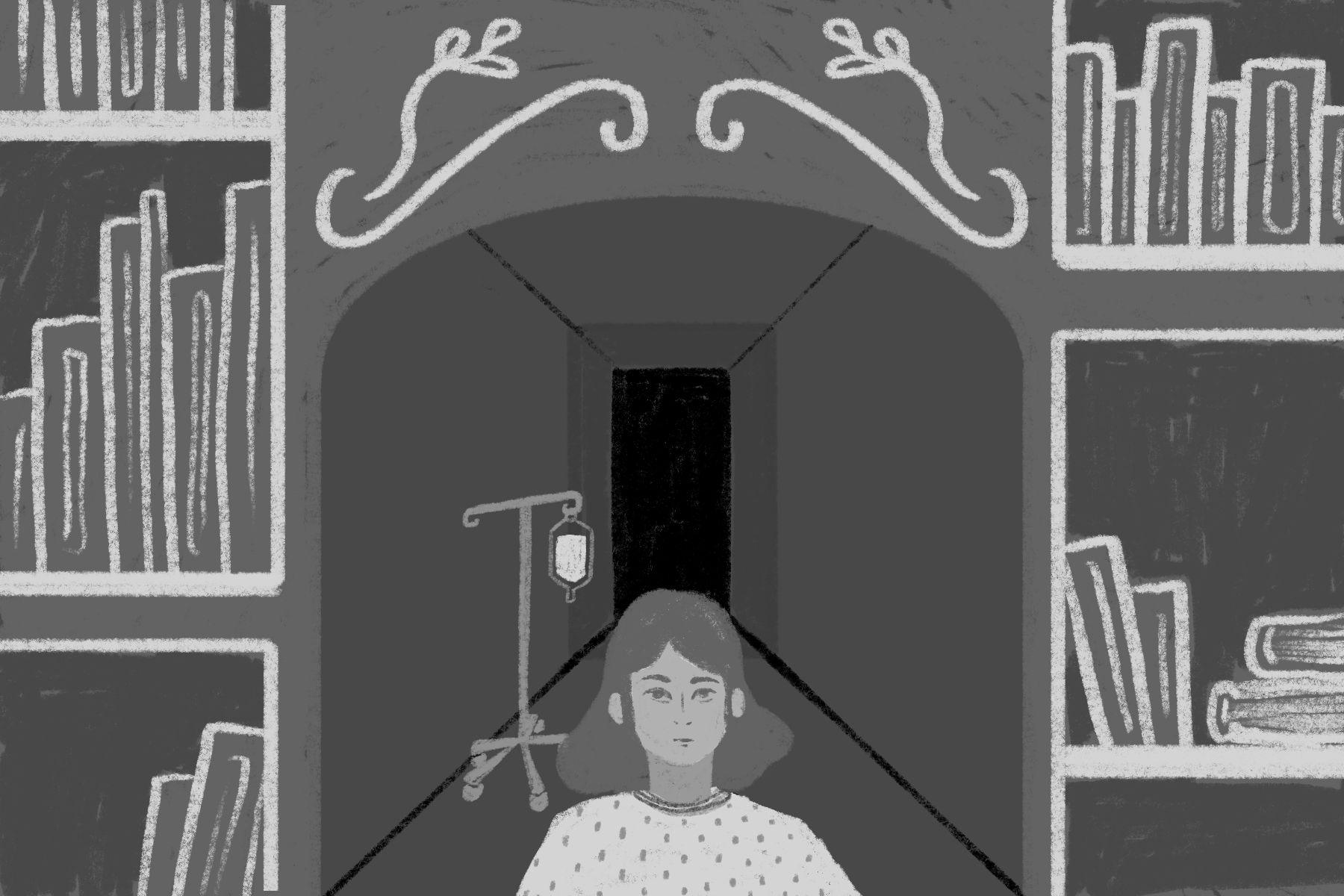The privilege of medical leave
October 14, 2022
 This
piece represents the opinion of the author
.
This
piece represents the opinion of the author
.
 Eva Ahn
Eva AhnTrigger warning: This op-ed contains content relating to mental health disorders and treatment. While no explicit details are discussed, descriptive language is used.
“Hi, I’m Meredith. I use she/her pronouns, and I’m in the Class of 2023, but I intend to graduate in 2025.” This is the phrase I’ve settled on when people ask what year I am. For a carefully curated line that’s been through many revisions, it’s short, simple and without a lie. What comes next is usually something along the lines of, “Oh, so you took time off during Covid, good for you.” For a casual interaction, this is pretty much the best-case scenario. The pandemic ushered in a new wave of acceptance for time off in higher education, and for this I am grateful. Hiding behind the misnomer that my gap years were an exciting and rebellious choice against the drone of online learning is an accessible comfort on the days where complete honesty feels like a chore.
The truth, however, goes something like this: my first year off was spent in varying levels of intensive treatment for an eating disorder. It was marked as a “personal leave” on my transcript. After returning to Bowdoin in 2021, I relapsed and went on medical leave, returning to higher levels of care, this time for a mood disorder. I applied for re-enrollment, was accepted and once again returned to Bowdoin’s campus. This is an incredibly abbreviated version of my journey.
However, what’s important is not the detailed account of my atypical path through Bowdoin but rather the institutional and systemic shortcomings that allow so many students of so many backgrounds and beginnings, including myself, to fall through the cracks. More importantly, this is an account of the privilege that it takes to recover, the privilege that we so casually flaunt in the faces of those struggling to keep their heads above water, the privilege that we look over when we joke about killing or starving ourselves.
I had access to almost every resource in the book. I had health insurance that covered intensive treatment. I had a mom that could work remotely while being by my side. I had a dean that kindly laid out my options on a silver platter. Yet, I was still allowed to leave the counseling center while showing obvious signs of crisis. I was told I could access Bowdoin’s psychiatric services while on leave then denied those same resources three months later. I participated in a separate round of course registration that did not account for returning students and drastically limited our academic options. I was asked to step on a scale, blinking aggressively with how much weight I’d gained, in front of my whole team. I stared at Bowdoin’s page on eating disorders where a measly paragraph with no substantial information glared back at me. I was assigned both a new adviser and dean without warning or notice. This, unfortunately, is just the tip of the iceberg.
Bowdoin College, as an institution, has consistently abandoned and let down students struggling with mental and physical illness. Those who are most vulnerable are left with the least support. While there are many incredible and caring individuals on the College’s faculty and within the administration, the actions of our academic “home” give rise to a plethora of questions. Why is 2022 the first year that Bowdoin has a specialized dean for students returning from leave? Why do we post mental health related emergencies in the Orient’s Security Report? Have we failed to consider how this might turn people in crisis away from reaching out to security, for fear of their most vulnerable moments being published in the school newspaper?
How is sending students off campus to a potentially unsupportive or unstable home environment the only way to “keep them safe”? Do we really value the health and wellbeing of our students or do we see their illness as a liability? Why is our illness considered a burden on our professors, the very folk paid to teach and guide us?
Questions like these are just the beginning. As a middle class, white, cis-gendered woman on this campus, my voice will easily be amplified in this conversation. But let us not forget that for every story like mine, there are countless equivalents coming from shunned and marginalized voices, from those without a support system like mine and from those whose stories had a different ending. Let us listen to and amplify these stories, for it’s all of our experiences, not just mine, that deserve to be heard. Finally, let us use these stories to fuel policy change, to shift societal norms and to support those who need it most.

Comments
Before submitting a comment, please review our comment policy. Some key points from the policy: